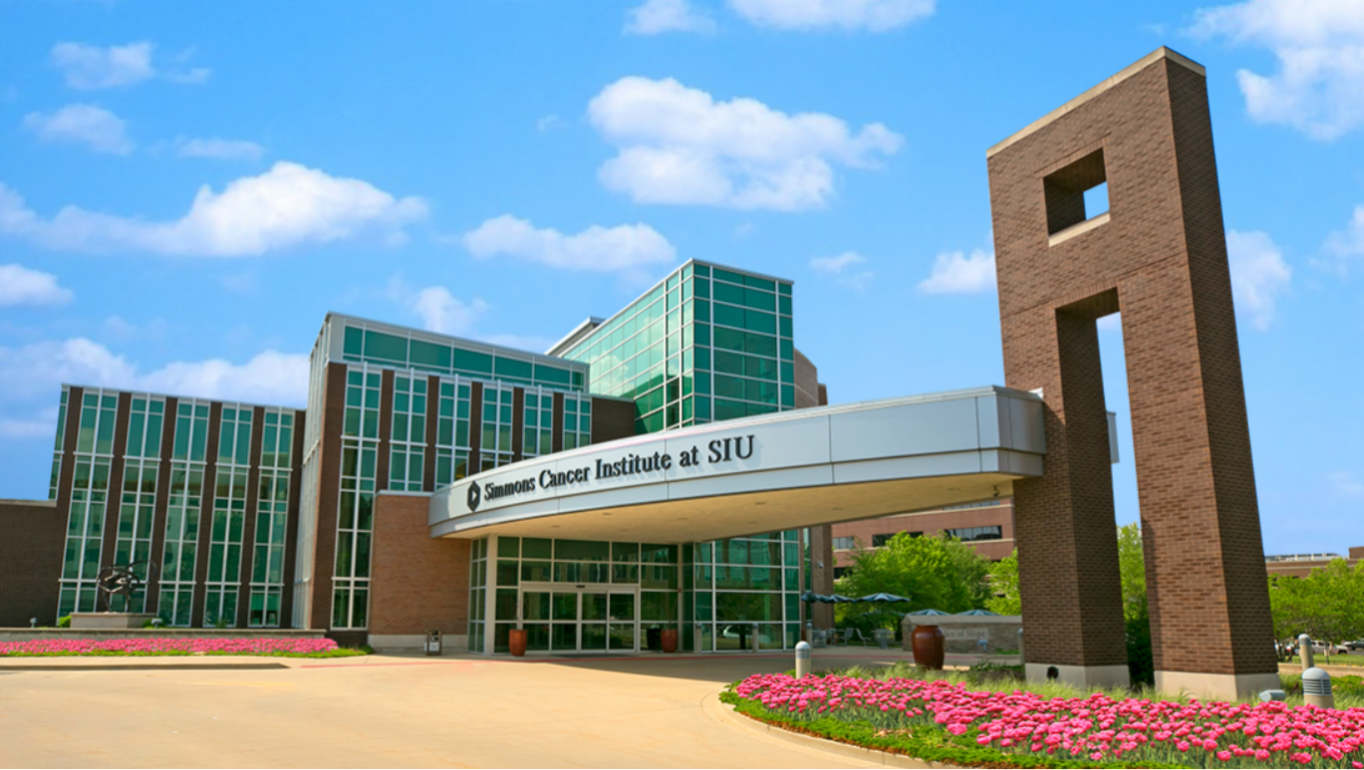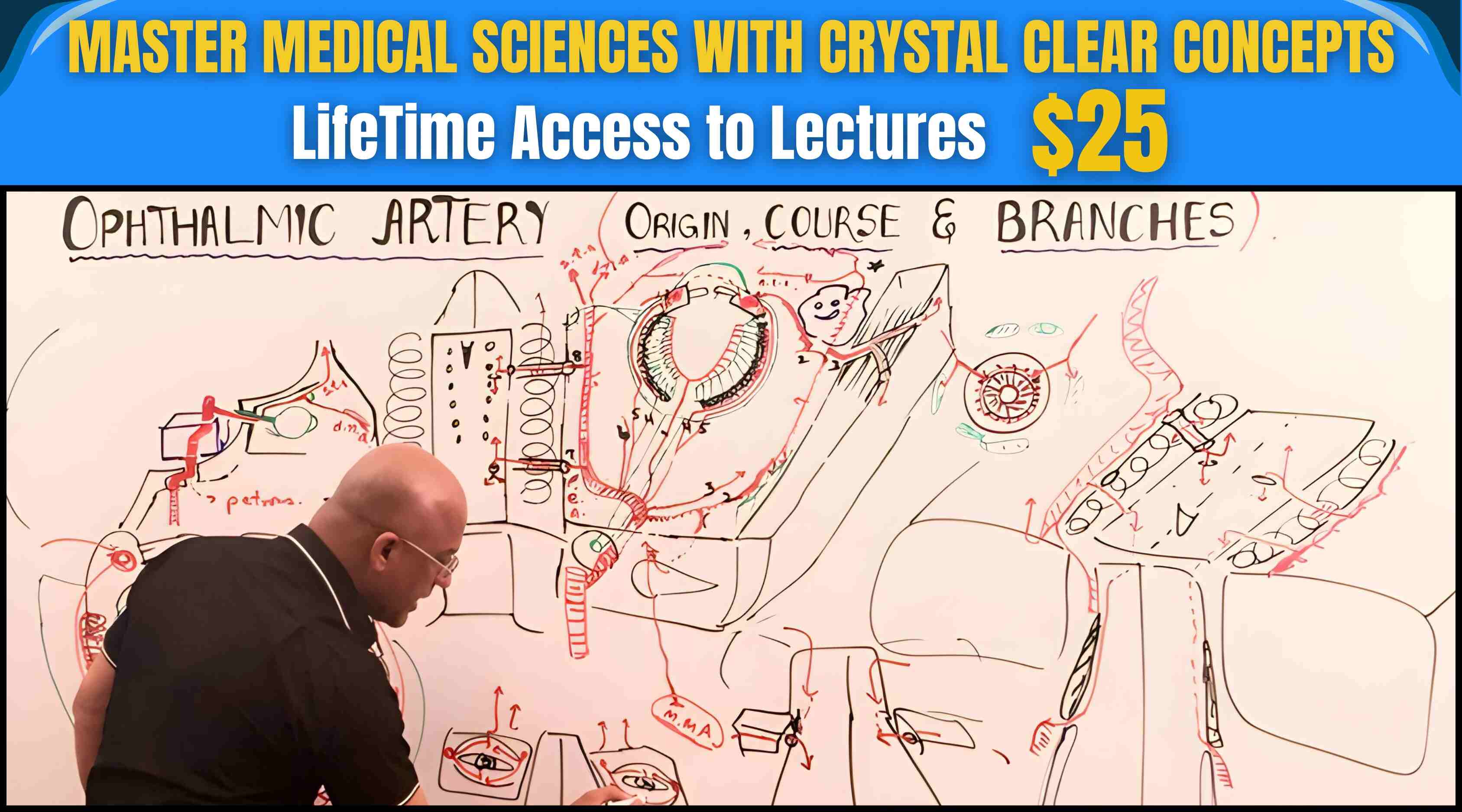Southern Illinois University School of Medicine

About:
Southern Illinois University, also known as SIU School of Medicine was founded in 1970 to educate and train physicians to retain them in southern and central Illinois. SIU School of Medicine is a medical school that focuses on these four areas of excellence; research, medical education, community service, and patient care. SIU medical school has around 270 physicians who treat patients, across the whole are through its multidisciplinary clinics called SIU Medicine. SIU School of Medicine is also engaged in the world-renowned and latest research, notably in audiology, cancer, and Alzheimer’s. Community service is a major part of everything SIU medical school does. SIU School of Medicine has two campuses; Springfield and Carbondale.
As SIU School of Medicine is a community-based medical school, it doesn’t have its hospitals but it is partnered with various hospitals of Illinois to make sure that they meet all the needs of the communities with a patient-centered focus. The SIU School of Medicine is there for two main reasons; one is to enhance the health of the people of central, western, and southern Illinois and enhance the delivery of health care. The second reason is to improve the discipline of medicine. By educating and training scientists, physicians, and physician assistants, and by treating people and communities through systems of care and by researching the cures and causes of disease, the SIU School of Medicine’s aims to meet the Triple aim + 1; Education and Health care that’s enjoyable, efficient, effective, and equitable.
- To be able to demonstrate deductive reasoning in solving clinical problems, including situations in which information is incomplete or ambiguous.
- To possess a commitment to promote the health and well-being of the communities served.
- To teach their students to work effectively with the other members of the health care team and provide quality patient care and service to improve the healthcare of central and Southern Illinois.
- To possess a dedication to the well-being and needs of patients and have an ability to build therapeutic relationships with patients.
- To demonstrate a commitment to excellence and ongoing professional development.
Excellence:
The School, faculty, trainees, and students will demonstrate a commitment to excellence and ongoing professional development.Leadership:
The School will assume a leadership role to teach students to possess a commitment to promote the health and well-being of the communities served.Diversity:
The School will ensure diversity in its faculty, trainees, subject matter experts as well as the courses which are offered to students.Respect, Ethical Behavior, and Professionalism:
The School will encourage its students, faculty, and trainees to possess a dedication to the well-being and needs of patients and demonstrate responsibility and trustworthiness in the execution of all duties.
Contact Details:
Location:
801 N Rutledge St, Springfield, IL 62702, United States.Contact:
1-800-342-5748, 217-545-8000.Mission:
SIU School of Medicine’s mission is to support the people of southern and central Illinois in meeting their health-care needs through research, patient care, and education, service, and patient care to the community.
Goals:
The SIU School of Medicine is dedicated to achieving the following goals by providing high-quality medical education to its students:
Values:
Following are some of the values which will help SIU medical school fulfill their mission and goals:
Departments:
- Anatomy
- Associate Dean for Research
- Biochemistry and Molecular Biology
- Cardiothoracic
- Center for Alzheimer’s Disease and Related Disorders
- Center for Clinical Research
- Endocrinology
- General Surgery
- Roland Folse, MD, Surgical Skills Center
- Medical Microbiology, Immunology and Cell Biology
- Neurology
- Neurosurgery
- Obstetrics and Gynecology
- Orthopedic Surgery
- Otolaryngology
- Pharmacology
- Physiology
- Plastic Surgery
- Population Science and Policy
- Simmons Cancer Institute
- Technology Transfer
- Urology
- Vascular Surgery
Education:
SIU School of Medicine is a community-based medical college educating undergraduate medical students, surgical and medical fellows, and residents. The SIU School of Medicine also offers graduate degrees in basic sciences (Doctorates and Master’s), along with a curriculum for physician assistant students, and programs for those students who want to earn a dual MD/MPH and an MD/JD degrees. SIU School of Medicine also offers a Preparatory program called MEDPREP to the students who need prerequisites to medical college. Overall, the SIU School of Medicine has graduated with about more than 5,000 medical professionals.
The SIU School of Medicine has consistently secured international recognition for its cutting-edge medical assessment and education. Since 1973, the SUI School of Medicine has been continually accredited by the LMCE (Liaison Committee on Medical Education). The school didn’t receive any citations during the last two accreditations (2007 & 2015) which makes it the only school of the United States to do so.
- MD – MPH Program
- M/JD Program
- MED PREP
- Medical Microbiology, Immunology, & Cell Biology Program (Springfield)
- Public Health Laboratory Science Program (Springfield)
- Pharmacology Graduate Degree Program (Springfield)
- Physician Assistant Program (Carbondale)
- School of Allied Health (Carbondale)
- School of Dental Medicine (Edwardsville)
- School of Pharmacy (Edwardsville)
- School of Public Health (Carbondale)
- School of Nursing (Edwardsville)
Educational Programs:
Admission Requirements:
- The applicant must have completed 60 credit hours in a U.S. university/college.
- Science cumulative undergraduate GPA must be a minimum 2.80 (or last 60 hours of science GPA)
- Collectively cumulative undergraduate or course work grade point average or last 60 hours must be 2.80 (on the scale of 4.00).
- MCAT (Medical College Admissions Test) scores of more than two years old will not be considered. Applicants must have a minimum total score of 498.
- The applicant must have a permanent resident visa OR be a citizen of the United States.
- The applicant must be a resident of Illinois (unless he/she is applying to the MD/JD program which undertakes out-of-state applicants)
- The applicant must have passed or completed a criminal background check.
- A minimum of 90 semester credit hours of undergraduate course work must be completed from an accredited university/college.
- 2-years of chemistry, including organic
- 1-year of physics
- 1-year of English composition
- 1-year of mathematics, including statistics
- 1-year of life sciences or biological
- One semester of genetics, cell/molecular biology, biochemistry, physiology
- Academic strengths
- Engagement in extracurricular activities
- Volunteer and Employment experiences
- Area of residence. However, the preference is given to the residents of southern and central Illinois and those from inner-city, rural, or disadvantaged backgrounds
- Evidence of maturity, responsibility, compassion, and integrity
- Strong motivation
- Identification of the School’s goals
- Exploration of medicine as a career
- Service orientation
- Strong interpersonal skills
- Candidate can submit four individual letters of recommendation. This particular option requires 3 letters written by academic sources (i.e. research advisor or professor) and one professional or personal letter. All the letters of recommendation, supplementary materials, and the application must be received by 1st February by the Admissions Office.
- Candidate can submit one letter from the pre-health professions committee or other composite letters of recommendation.
- Interviews typically start in the mid of August and end at the beginning of March.
- Approximately, 300 interviews are coordinated by the Admissions Office.
- The interviewed candidates can expect to receive an admission decision within 4 weeks after their interview.
At the time of Application:
The candidate must fulfill the following criteria at the time of application:At the time of matriculation:
The candidate must fulfill the following criteria at the time of application:Selection Factors:
Before the MCAT, the SIU School of Medicine doesn’t require any specific prerequisite courses. However, to perform well on the MCAT, it is recommended to have:
Interview Selection:
The candidates are selected for the interview according to the following criteria:
Application Acceptance:
Before issuing the acceptance of any candidate, there are several factors considered by the Admissions Committee that are:
Admission Policies:
Medical College Admissions Test:
The MCAT scores that are not older than 2 years are considered by the Admissions Committee at the time of application (i.e. 2017 MCAT scores are the oldest considered for 2020.) The most recent MCAT scores considered for 2020 entry are those from a September 2019 test date. The latest MCAT scores are considered by the Admissions Committee during its review of applications.Letters of Recommendation:
The SIU School of Medicine accepts only those letters of recommendation that are submitted through AMCAS letters of evaluation utility. There are several ways offered by the AMCAS through which letters can be submitted. The candidates are requested to submit letters of recommendation at the time they are invited to submit a supplementary application. At that point, candidates have two options:Illinois Residency:
The Southern Illinois University School of Medicine only offers residence for regular MD program to legal Illinois residents. Legal residents are considered to be those residents who are registered to vote in the State or have a valid Illinois drivers’ license.Admissions Timeline:
|
AMCAS submission |
June 1 – November 15 |
|
AMCAS deadline |
November 15 |
|
Supplemental application submission |
July 15 to February 1 |
|
Supplemental application receipt deadline |
4:30 pm CST, February 1 |
|
Admissions Interviews |
August – March |
|
Acceptance Notification |
December, February, March, and as needed thereafter. |
|
Multiple acceptance decision deadlines |
April 30 |
Interview Day:
All the qualified candidates are invited for admissions interviews at the SIU School of Medicine campus in Springfield. This step is the last in the admissions process before a final decision is made on an applicant’s file. The day gives a chance to get to know the candidate better and to measure their identification with the goals and mission of the school. Also, it provides students with an opportunity to see the school’s facilities, talk to students and faculty, and decide whether The SIU School of Medicine is a good fit for the candidate.
During the interview, candidates will be interviewed by two faculty members. One of the two interviewers will be a member of the Admissions Committee and he will have access to the complete admissions application of the candidate. The interviewer will be a faculty member who is not on the Committee. This person will only have basic biographical information and supplemental application essays of the candidate at the time of the interview.
There a few quick facts about interviews at the Southern Illinois University School of Medicine:
Programs
- Dermatology
- Emergency Medicine
- Family Medicine- Carbondale
- Family Medicine- Decatur
- Family Medicine- Quincy
- Family Medicine- Springfield
- General Surgery
- Internal Medicine
- Medicine/Psychiatry
- Neurology
- Neurosurgery
- Obstetrics and Gynecology
- Orthopedics and Rehabilitation
- Otolaryngology
- Pediatrics
- Plastic and Reconstructive Surgery
- Psychiatry
- Radiology
- Urology
- Vascular Surgery
- Adult Reconstructive Surgery
- Cardiology
- Child and Adolescent Psychiatry
- Colon and Rectal Surgery
- Endocrinology
- Hand Surgery
- Hematology/Oncology
- Infectious Diseases
- Pulmonary Critical Care
- Sports Medicine – Carbondale
- Sports Medicine – Quincy
Residency Programs:
Fellowship Programs:
Advantages of the SIU School of Medicine:
Leading-edge curriculum:
The Southern Illinois University School of Medicine has been recognized as a pioneering leader in the medical profession. Both, the clinical experiences that usually begin early in the first year and a problem-based learning approach to education allow students for integration of basic science knowledge into their clinical skill development.Student-Centered Education:
The class size is usually small that allows for improved faculty-student interactions and enhanced opportunities to pursue research and clinical areas of interest.- For clinical and basic science instruction, students usually coordinate in small groups (6-7 students).
- The faculty to student ratio at the SIU School of medicine is about 1:1.
- SIU Student Recreational Services engages students to promote wellness through socially healthy lifestyles and interaction.
- The Recreation Center aims to be knowledgeable, resourceful, and professional while embracing inclusivity and creativity.
There are a few characteristics of the SIU School of Medicine that make this school an excellent choice for candidates to attend:
Quick facts:
One-of-a-kind:
The Medical Humanities department of the medical school offers an in-depth Doctoring curriculum that allows students to attain a greater understanding of the complex ethical, philosophical, legal, psychosocial, spiritual, and policy issues affecting health care patients, providers, and the community.Student Life:
SIU Student Recreation Center Services:
The goal of SIU Student Recreational Services is to improve the quality of life for the students and community of SIU by providing them numerous opportunities in safe environments and facilities.
Programs of SIU REC:
- Fitness
- Aquatics
- Intramural Sports
- Touch of Nature’s Basecamp
- Youth Recreation
- Access Inclusive Recreation
How to stay focused in a Medical School?
Getting into a medical school is difficult but what’s more difficult is to survive in a medical school. The main reason for this is that students easily get distracted by the distractions around them and are unable to make their way back to their studies. Keeping up with your schoolwork will be hard if you’re among those students. The key to this is to eliminate the distractions around you and set up an ideal studying environment for yourself.
Set your Study Goals:
First of all, identify your goals that why are you here in this medical school? What made you come here? You’ve been working day and night for this opportunity. If you’re going to identify your objectives, you’re going to completed half of your job. Try to set your daily goals and start prioritizing what’s important for you and what’s not. Get done with the most important tasks first and never leave anything for the last day because medical school is not the ideal place to do so. Maybe, you were someone who used to pass by only studying a night before exam but these tactics don’t work in a medical school.
Learn to say NO:
Nobody will ever tell you to give up on your social activities but you’ll have to take some bold steps if you want to survive in a medical school. If you’re used to dining out every day, make it limited to only one day per week which will not help you focus more on your studies but it will also help you save a lot of money as well. If someone is asking you to accompany them to wherever they’re going when you know you have to study, say no and tell them that you’re busy and when can you make up for it. In short, you should realize that when to say no.
Choose your study environment wisely:
Unless and until you have good study partners, try to study alone. If you find your home environment to be distracting, grab your study materials, and find a comfortable study spot for yourself. However, if you’re studying at home, you must choose a quiet place with the least amount of distractions. If there’s some distracting noise around you, try to eliminate it by headphones and turn on a study playlist, whatever is suitable for you. It is recommended that you should create the best possible environment for yourself before you start studying so that you don’t have to pause again and again in the mid-session to change things.
Relax:
Amidst all the difficulties of a medical student, the self-care factor can’t be ignored. Your health has a huge impact on your studies and productivity. Be a part of several clubs and societies that are present in your school and engage yourself in the activities to give yourself a break from studies. Studies have shown that participating in these extra-curricular activities not only benefits your body but also your brain and results in increased productivity.
Reward yourself if you achieve something, which means incentivizing hard work. This further grows seeds of more hard work and you’re inclined to do better each time in hope of reward from yourself. Give yourself a break now and then, rather than pilling up all the notes into your brain until it can’t take anymore. It can mean that pick a day or two in a week and spend time with your friends and family and do stuff that makes you feel happy and relax because your idea of self-care is entirely different depending upon your personality.
Dr. Najeeb Lectures:
There are a lot of times in a medical school that it becomes really hard for the students to stay focused in the class because they might miss a class or they don’t understand something and boom! They’re behind everyone now. But what if you could replay all the lectures and understand everything taught in the class in a better way? Yes, it is possible now with Dr. Najeeb Lectures. Now, with these lectures, you can learn on your schedule. Rather than leaving your home early or skipping family gatherings to rush to campus, you’re logging in when it is convenient for you; at a time that doesn’t interfere with your other commitments. This flexibility will allow you to manage your school, family, and social life more easily.
In addition to this, most of the students don’t feel comfortable asking professors to repeat something they said in the last lecture or dive into deeper detail in a specific topic. But with Dr. Najeeb Lectures, you can revisit the past study material or pause the lecture to perform additional research or maintain your notes. You can work through the lesson plan at your own pace to ensure you’re mastering the material before moving on to the next section. These topics cover a wide canvas encompassing Neuro-anatomy, Embryology, Histology, Physiology, Biochemistry, Genetics, Pharmacology, Microbiology, Immunology, and Pathology. These lectures cover almost all the topics currently in the medical curriculum of almost all the medical institutes. Furthermore, our application makes you accessible to the lectures irrespective of where and when, with no time constraints. Thus, with so many strong aspects of these lectures, these lectures should be your go-to, making your life easy without any constraints and barriers therein.
In the end, we would like to assure you that there are always ups and downs in life. Don’t lose hope, keep our tips in mind, and Good luck!
For more information, please visit their official website.







